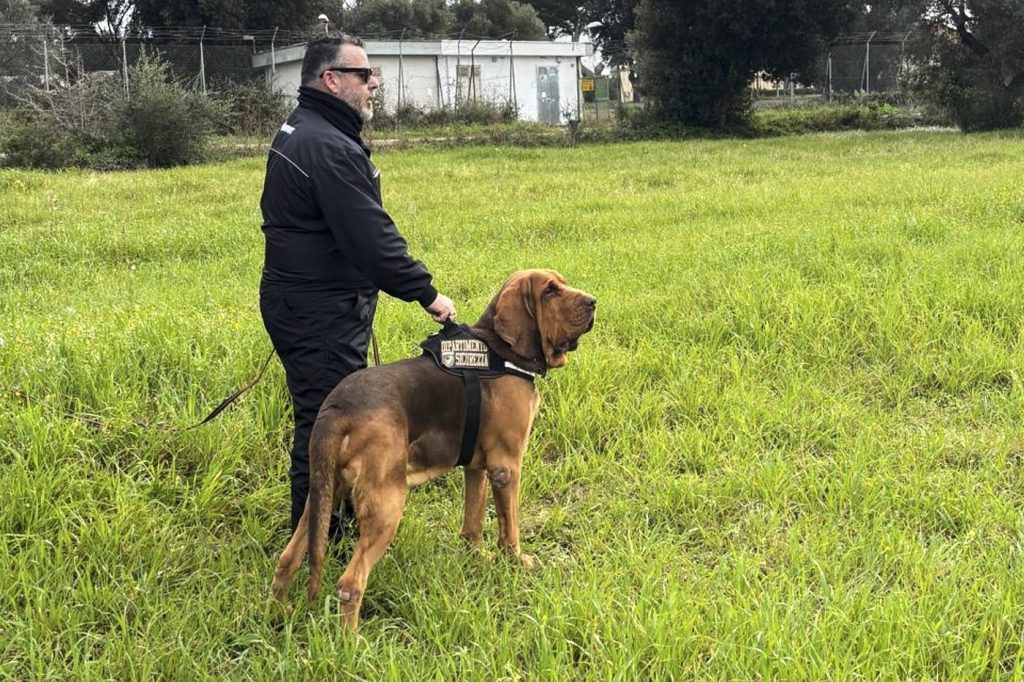ROME (AP) – The tragic death of a police bloodhound named Bruno has sparked national outrage in Italy and prompted a criminal investigation into his brutal killing. Bruno, a 7-year-old bloodhound weighing 88 kilograms (195 pounds), was found lifeless in his shed in southern Taranto on Friday morning. His trainer, Arcangelo Caressa, revealed that Bruno had been poisoned with bits of dog food laced with nails. Caressa expressed his belief that the brutal act was a form of revenge against him for his volunteer work in animal rescue, rather than an attack solely against Bruno.
Caressa described the manner of the dog's death as particularly horrific, indicating that the laced food would cause unimaginable suffering by tearing apart Bruno's insides, esophagus, and internal organs. In an interview, he explained, “It was deliberately a horrific act to cause the dog intense suffering.” The death of Bruno has provoked a strong response from various public figures, including Italian Premier Giorgia Meloni, who condemned the act as “vile, cowardly, unacceptable.”
Lawmaker Michael Vittoria Brambilla, a long-time advocate for animal rights, has taken action by filing a criminal complaint under a recent law designed to impose stricter penalties for animal cruelty. This legislation, known as the Brambilla law, took effect on July 1 and establishes penalties of up to four years in prison and fines as high as 60,000 euros (approximately $70,000). Stiffer penalties are mandated if mistreatment occurs in front of children or if it is documented and shared online.
Vittorio Feltri, the editor of the Il Giornale daily, expressed his outrage over the incident, asserting that Bruno had contributed more to civic life in Italy than many citizens. Caressa reiterated his belief that the culprits intended to target him as an individual rather than Bruno, stating, “Bruno was killed to get to me.” He leads a volunteer organization called ENDAS, which rescues dogs from illegal dogfighting rings, and has faced threats and slander from individuals who previously tried to undermine his rescue efforts.
Caressa noted that in recent months, he and his organization have experienced significant harassment from individuals with criminal histories who have been previously investigated for similar offenses. These threats, he claimed, were part of a despicable campaign to take control of the animal rescue service that he operates.
Despite his physically imposing size, Caressa described Bruno as a dedicated and remarkable worker who excelled in rescue operations. “He was a giant,” Caressa stated, reflecting on the bloodhound's prowess. “When he went out on a search and you put his harness on, there was no one else like him.” Throughout his career, Bruno was credited with finding nine individuals: five alive and four deceased. Caressa emphasized the commitment of rescue teams to recover missing persons, reflecting the emotional impact of loss on their families.
The violent manner of Bruno's death has resonated deeply with the Italian public, igniting discussions about the protection of animals and the need for tougher legislation against cruelty. Feltri and other advocates have called for even harsher penalties than those set forth in the Brambilla law, stressing the moral imperative to respect animals, particularly those that serve heroically as Bruno did.












